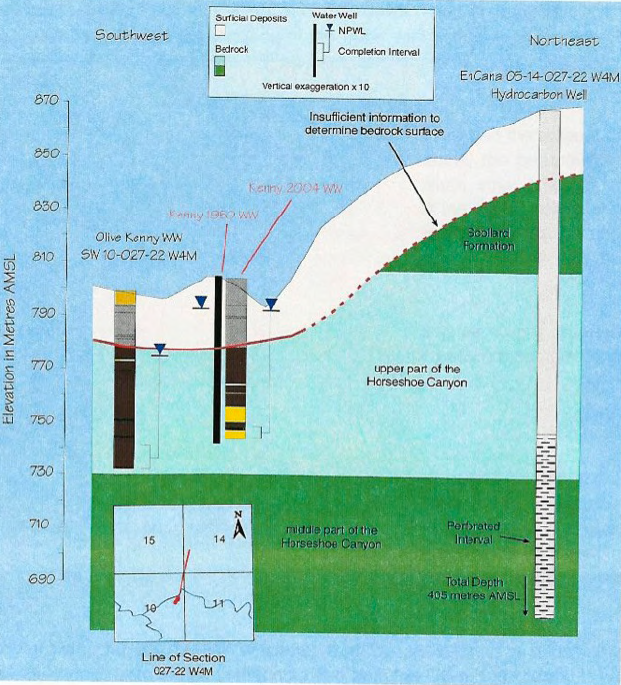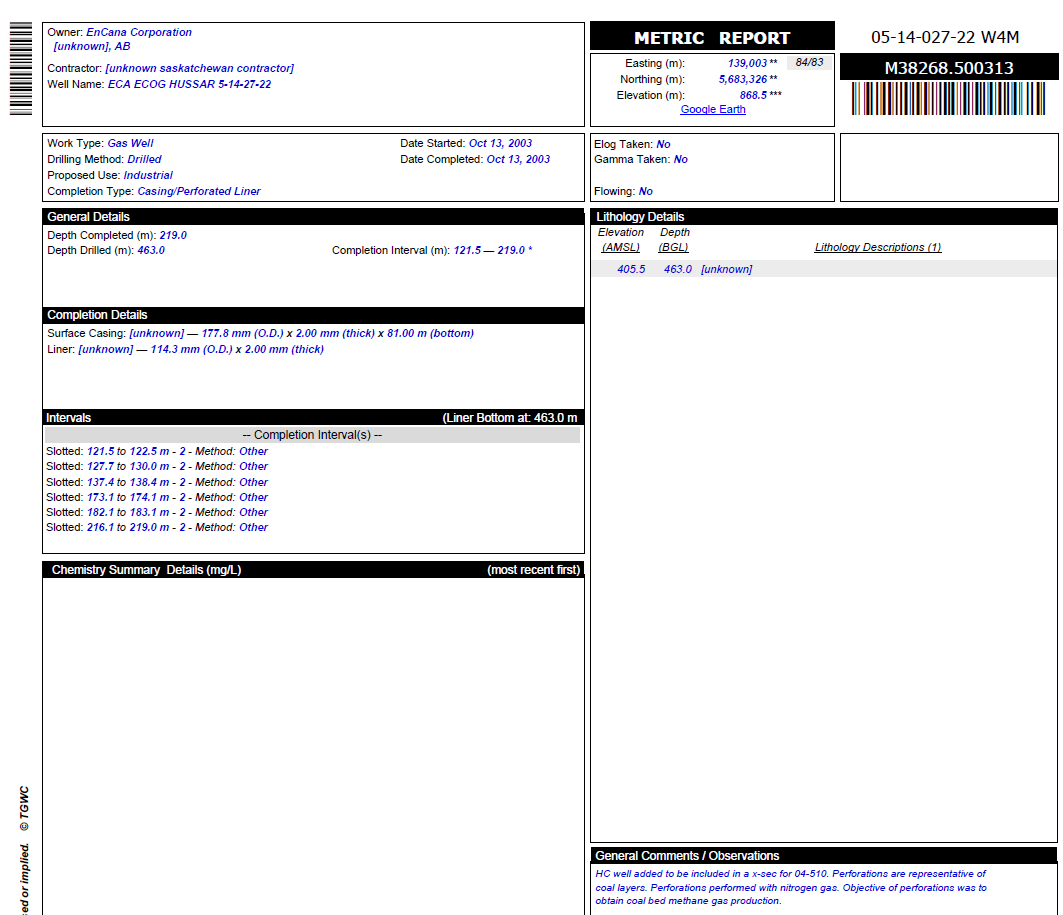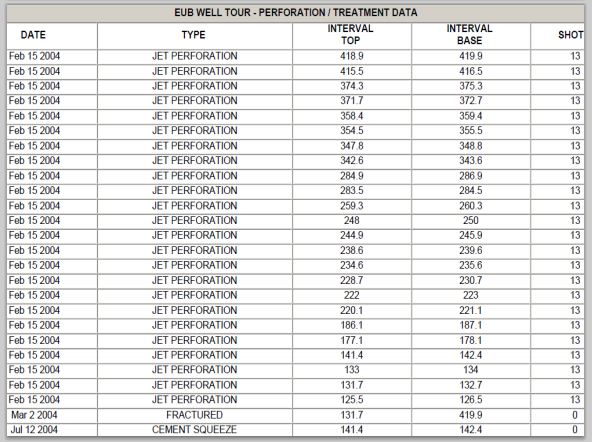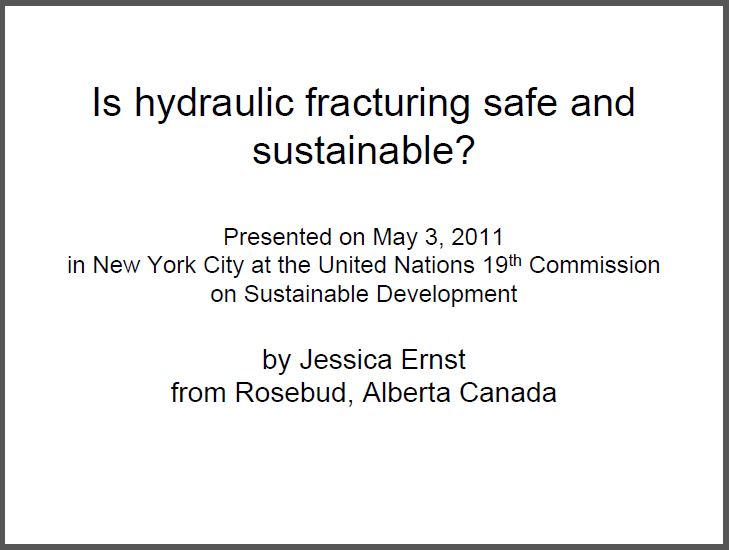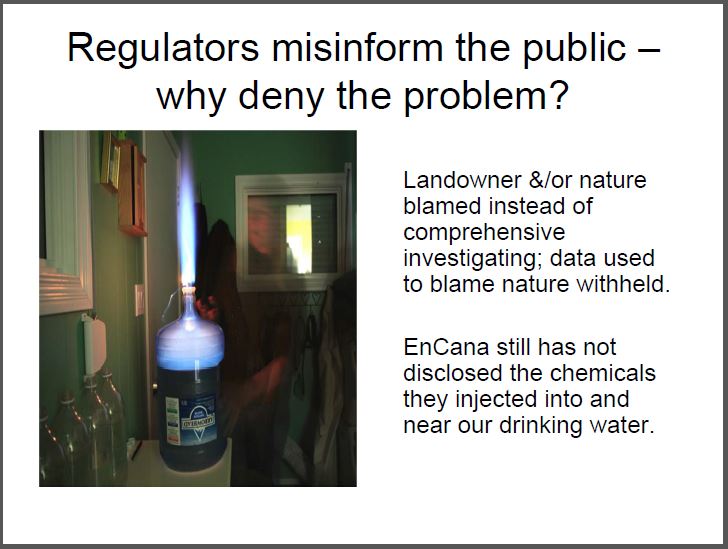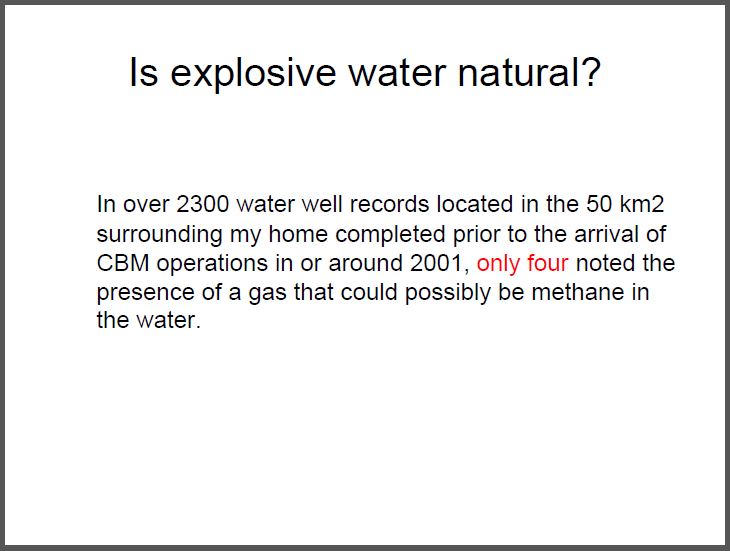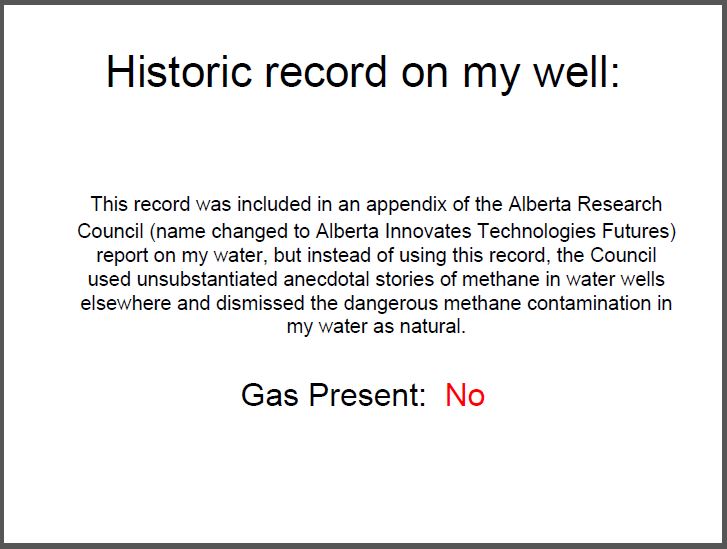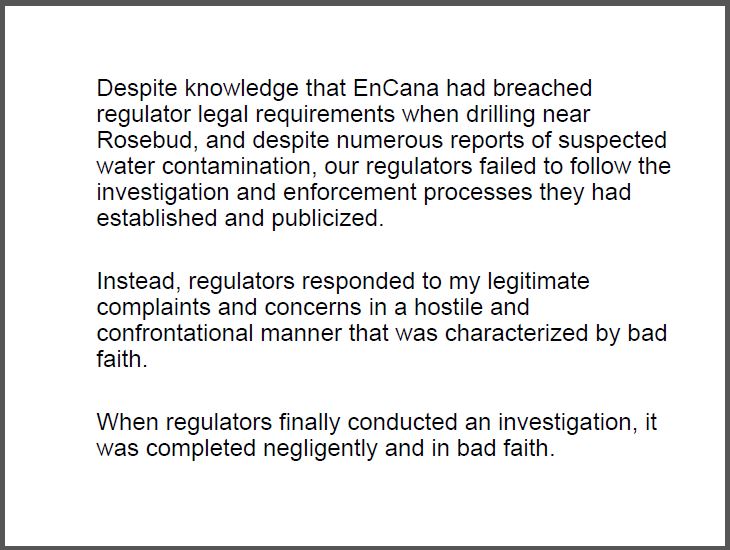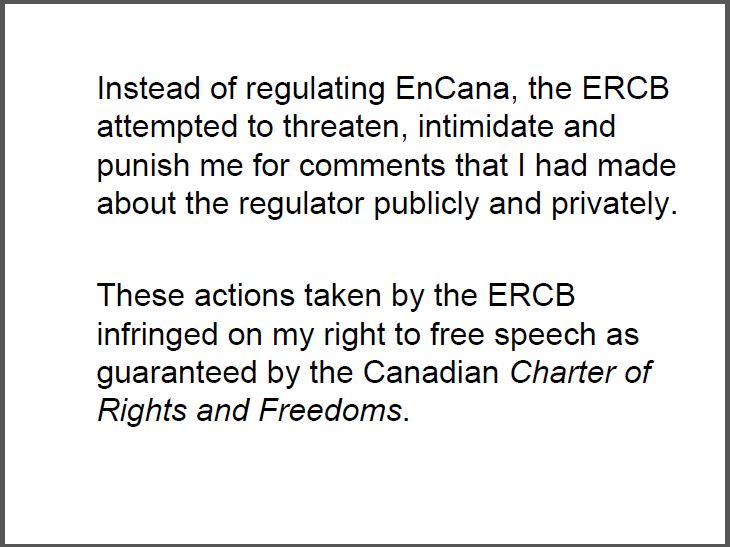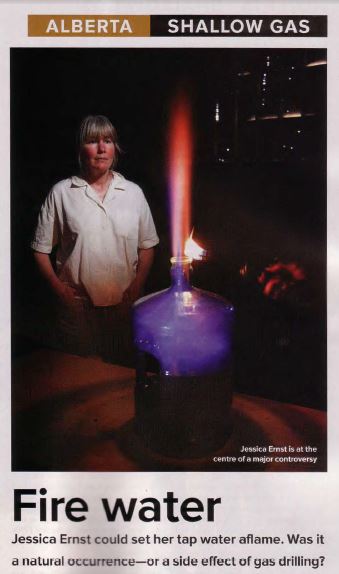PEI
Spread the word by New Brunswick Anti-Shale Gas Alliance, May 26, 2016
In encouraging local news, The Environmental Advisory Committee, established by the Provincial Government of PEI to create a new Water Act, has recommended banning fracking in PEI. This conforms to the trend of the last few years, as the case against shale gas and fracking grows with each new study, regardless of topic – water contamination, public health, earthquakes, climate change, etc.
Recently, news on fracking has taken a decided about-face from the many stories previously singing its praises. The truth is beginning to emerge. [Emphasis added]
NEW BRUNSWICK
N.B. opposition calling for compromise on fracking moratorium by Laura Brown, CTV Atlantic, May 31, 2016
Opposition MLA’s in New Brunswick are asking that a company impacted by a provincial moratorium on fracking be given an exemption. For over 13 years, Corridor Resources has been involved in gas production in the Sussex area. “A regional moratorium to allow fracking [isn’t that a contradiction?] in that area, could have allowed Corridor Resources to continue and provide jobs and investment in an area of the province that’s been hard hit with the closure of the Potash mine,” said New Brunswick Opposition Leader Bruce Fitch.
More than 400 people lost their job when PotashCorp shut down in January. Tuesday marked the last day of work for most of its remaining employees. “I’m concerned for new Brunswick,” said Fitch. “There could have been a significant opportunity missed in the province with them continuing the moratorium indefinitely, which is really a ban.”
Corridor Resources president Steve Moran declined to comment on the government move, but says he will at a later date.
Energy expert Colleen Mitchell says Moran’s company has a proven track record. “Corridor Resources has an exemplary record, safety, health, protecting the environment, all of that, and the opportunity for them to continue would be really in the province’s best interest,” said Mitchell. New Brunswick Minister of Energy and Mines Donald Arseneault was not available to comment on the idea of a regional moratorium. [Emphasis added]
Moratorium on hydraulic fracturing to continue indefinitely Press Release by Government of New Brunswick, May 27, 2016
FREDERICTON (GNB) – As a result of the findings from the Commission on Hydraulic Fracturing, the provincial government will continue its moratorium on hydraulic fracturing indefinitely.
“We have been clear that we would not allow this activity to go forward unless our five conditions were met,” said Energy and Mines Minister Donald Arseneault. “Creating jobs is our number one priority, but not at any cost. It is clear that our conditions cannot be satisfied in the foreseeable future.”
The five conditions that must be met include ensuring:
- a social licence is in place;
- clear and credible information is available about the impacts of hydraulic fracturing on public health, the environment and water, allowing the government to develop a country-leading regulatory regime with sufficient enforcement capabilities;
- a plan is in place to mitigate the impacts on public infrastructure and to address issues such as waste water disposal;
- a process is in place to respect the duty of the provincial government to consult with First Nations; and
- a mechanism is in place to ensure that benefits are maximized for New Brunswickers, including the development of a proper royalty structure.
“After careful consideration it is clear to us that the industry has not met the conditions,” said Arseneault. “Additionally, the global market for natural gas has seen a precipitous drop in prices, which makes it further unlikely that industry will invest the necessary efforts to address the conditions in the short or medium term.”
Arseneault also noted that prior to September 2014, there was no clear energy policy and no plan to deal with critical issues such as the disposal of wastewater from hydraulic fracturing, which resulted in a moratorium. Industry proposals to dispose of wastewater from hydraulic fracturing into municipal systems in Moncton or Saint John are not acceptable.
Before the government can consider whether a hydraulic fracturing project meets the five conditions, it must implement a number of findings from the commission that are essential to a robust regulatory and permitting regime, including:
- An independent regulator should be created with a mandate to strengthen New Brunswick’s monitoring and evaluation of shale gas development in terms of understanding cumulative effects, including impact on human health and the environment.
- Adequate resources must be assigned to properly plan for potential public infrastructure impacts.
- Short-term and long-term solutions to hydraulically fractured wastewater should be determined before commercial production begins.
- The provincial government needs to work with aboriginal leadership in New Brunswick to adopt a nation-to-nation consultation process for hydraulic fracturing.
“We believe that this decision strikes the appropriate balance between protecting the environment and creating jobs for New Brunswickers,” said Arseneault. “We will continue to support other resource projects such as the Energy East pipeline and the Sisson mine.” [Emphasis added]
[Frac Industry Reality Check:
Anti-fracking protesters celebrate indefinite moratorium, Activists would rather ban be permanent, but pleased fight paid off by Bobbi-Jean MacKinnon with files from Tori Weldon, May 28, 2016, CBC News
Anti-fracking protesters across New Brunswick are celebrating after Friday’s announcement the provincial government has extended a hydraulic fracturing moratorium indefinitely.
They say they would prefer to see it be permanent, rather than indefinite.
Still, they are pleased their fight paid off.
“It’s a big relief that I don’t have to worry about my water,” said Willi Nowlan, who was a prominent figure in the anti-fracking campaign in Rexton, where protesters and the RCMP clashed in 2013.
“You know, a lot of us didn’t sleep for a long time.”
She says it was a hard-won fight and after a lifetime of activism, she might finally be ready to take time off.
“The government did the right thing,” said Nowlan. “Indefinite moratorium rings very sweetly to my ears.”
…
Hopes for green energy
Now Denise Melanson, who served as spokeswoman for the New Brunswick Anti-Shale Gas Alliance, is also ready to take a step out of the limelight.
“Never, never ever did I think that I would be standing at the side of the road with a picket in my hand, or doing interviews with the media, or doing any of these things,” she said.
But she felt it was her responsibility to do something she felt strongly about.
Melason hopes the province will now focus on green sources of energy.
“Build windmills, invite solar panel companies in, do the things that are going to take us into tomorrow.”
Indefinite extension on fracking
Energy Minister Donald Arseneault announced the indefinite extension on fracking on Friday, in response to the February report from the Commission on Hydraulic Fracturing.
Arseneault said the shale gas industry has still not met the conditions necessary to lift the moratorium.
“Creating jobs is our number one priority, but not at any cost. It is clear that our conditions cannot be satisfied in the foreseeable future,” he said in a statement.
Premier Brian Gallant’s Liberals imposed a moratorium on the shale gas industry shortly after winning the election.
Decision follows commission’s findings
The provincial government then appointed the hydraulic fracturing commission in March 2015 to investigate the contentious issue.
The three-member commission made several recommendations, including having a single, independent regulator for the industry. [Emphasis added]
Fracking ban in New Brunswick will remain indefinitely, says provincial energy minister by Kevin Bissett, The Canadian Press, May [27], 2016, Calgary Herald
FREDERICTON — A moratorium on hydraulic fracturing, imposed by New Brunswick’s Liberal government in December 2014, will remain in place indefinitely, the province’s energy minister announced Friday.
“We have been clear we would not allow this activity to go forward unless our five conditions were met,” Donald Arseneault said.
“Creating jobs is our number one priority, but not at any cost. It is clear that our conditions cannot be satisfied in the foreseeable future.”
The Liberal government’s conditions included a plan for regulations and waste-water disposal, a process for consultation with First Nations, a royalty structure, and a so-called social licence.
Arseneault was responding to a report from the commission on hydraulic fracturing which was released in February.
That hefty, three-volume document offered a long list of recommendations to follow if government were to allow a shale gas industry to grow in the province.
Among its recommendations were a single independent regulator, a plan for waste water disposal, a new strategy for environment and energy, and a new relationship with Indigenous people.
Arseneault said there was no way the industry could proceed right now because of the situation left by the previous Progressive Conservative government of premier David Alward.
“We’ve inherited a situation from the last government that really brought this industry where it’s at today. The way they conducted themselves and the relationship that really deteriorated with First Nations made it such that we had no choice but to put a moratorium in place in the province of New Brunswick,” he said.
The Alward government’s decision to embrace the shale gas industry was polarizing in the province, where a series of public protests culminated in a violent demonstration in the fall of 2013 in Rexton that saw 40 people arrested and six police vehicles burned.
Mi’kmaq chiefs in New Brunswick welcomed news that the moratorium will remain in place, and said they see it as an opportunity for the province to mend its relationship with First Nations communities.
But Fort Folly First Nation Chief Rebecca Knockwood said it’s time for Arseneault to stop blaming the previous government.
“Two years into this mandate the Gallant government can no longer pin the strained relationship on the former government. They are not meeting their constitutional obligation to consult First Nations on Sisson Mine or Energy East,” she said.
Interim Progressive Conservative Leader Bruce Fitch criticized the decision to maintain the moratorium. He said the Liberal government is failing to move the province forward.
It is clear that our conditions cannot be satisfied in the foreseeable future.
“They have actually hurt the province in many, many ways,” he said. “Driving the opportunity for investment out of the province of New Brunswick is another example of how this government says one thing and does another.”
But Samir Kayande, an analyst with Calgary-based RS Energy Group said he doubts there would be any shale gas development now in New Brunswick even if the moratorium was lifted.
“There’s a lot of gas in North America right now. So the focus among investors and the focus among industry has been trying to reduce the cost of what is already known, and available, and will last us for many, many years into the future,” he said.
Kayande said it takes a lot of money and time to develop a shale gas play, and the conditions don’t favour that happening any time soon in New Brunswick.
“There’s just not a price environment right now that is amenable to future resource development in exploratory areas,” he said.
The Conservation Council of New Brunswick and Green party Leader David Coon both applauded the decision to maintain the moratorium.
“The decision of the government is consistent with the logic presented by the commission on hydraulic fracturing and is certainly compatible with the vision of the Green party to follow the transition towards a green economy,” Coon said. [Emphasis added]
Comments to the article:
Diana Daunheimer
How refreshing, elected officials that govern in the public and environmental interest.
Here in Alberta, the NDP have stated in the Climate Leadership Plan, that fracced natural gas is “clean” with “limited adverse impacts,” while further pandering to industry by modernizing the royalty review and incentivizing high risk, deep unconventional extraction and production.
https://ernstversusencana.ca/new-brunswick-extends…
Steve Simonds · Calgary, Alberta
Different geology in NB make all the frac data here irrelevant to NB, so your guesswork analogy is incorrect. NB would be a brand new science experiment.
Diana Daunheimer Steve Simonds Would you care to share what “frac data” you speak of and how high volume hydraulic fracturing operations would differ from Alberta to NB?
Steve Simonds · Calgary, Alberta Diana Daunheimer A geologist in the AB oil industry told me what I quoted. I presume you didn’t consult with one based on your reply.
Diana Daunheimer Steve Simonds I consult industrial records, drilling reports, AER data sets, talk with any number of professionals, geos, environmental scientists, p.engs., emissions specialists, facility operators, even financial advisors and eNGOs.
Was the geologist you quoted on “frac data” speaking of the fraccing of CBM, gas, crude or condensate wells, deviated wells, shallow, intermediate or deep wells? Was this quote all encompassing of all vertical and horizontal fracs and the SAG-D fracs?
Was this geo’s quote inclusive of all the drilling problems of lost circulations and abandonments, all the operations of a fracced well bore that include the cementing, acidizing, perforating, hydraulic (hydrocarbon, slick or gel water or gas) completions, flaring, incinerations, well testing, pressure testing, waste disposal, surface casing vent flows, gas migrations, mix-bury-cover, injection wells, land-spray while drilling, sumps and pit waste, processing, pipeline internal and external corrosions, well communications, decline rates, compressor station emissions, routine and temporary venting, fugitive emissions, traffic, noise and light pollution, land disturbance, seismicity, spills, leaks, ruptures and blow-outs, remediation, reclamation, worker related deaths and injuries and public health hazards, including the impacts of all the chemicals used and produced in the process, such as NORM’s, particulate matter, VOC’s, PAH’s, nitrous oxides, H2S, SO2 and other total reduced sulphur compounds, heavy metals, produced water, CO, CO2, methane, methanol, formaldehyde, and hundreds of other hazardous and harmful hydrocarbon and chemical compounds?
All of this is irrelevant based on the geology of the play? I think not.
What does this geo think of the hydraulic fracturing operations inducing seismicity in the Fox Creek, Rocky Mountian House, Cardston and Horn River/Montney plays, will this be relevent fracking operations in NB?
Steve Simonds · Calgary, Alberta
Diana Daunheimer The article was NB fracking and I provided the reason why it is off limits. You are on a different mission discussing AB. Your first line “How refreshing, elected officials that govern in the public and environmental interest.” is comparing geological apples to oranges, since NB has zero geological data to go on, which is the reason they don’t allow fracking.
Diana Daunheimer
Steve Simonds
If I may, I did not compare the two regions geology, I compared the public interest governance. You stepped in to compare industrial operations.
If NB has zero geological data to go on, how could your geo guy claim irrelevance? You can not compare known and unknowns.
Never the matter, there is obviously geological data for NB. Nearly every square inch of Earth has been assessed for resource potential.
Here is a brief history of oil and gas in NB:
http://www2.gnb.ca/…/Corporate/pdf/ShaleGas/en/History.pdf
And more specifically if you are interested:
Chapter 22: New Brunswick: Fracturing with Nitroglycerin and Methane Leaks Into Water Wells
The oil and gas industry has been drilling the Stoney Creek community in New Brunswick for about 100 years, and fracturing there since about 1940 when a well was frac’d with nitroglycerin.226
Lab tests of drinking water in the Stoney Creek community find it unsafe: “This report contradicts the claims made by the government of New Brunswick that there have been no incidents connected to the oil and gas industry in recent decades … ”
“Senior laboratory technicians reported that they, quote, ‘lit the water on fire’, and found the water sample, provided to them by Mr. Charles Doucet, found it to be super saturated with methane.” … “Water contaminated with thermogenic natural gas, with diesel oil, and with barium – substances that are not normally found in this area.”
Hundreds of homes are thought to be affected.
“This is a well-known problem in the area. [W]hy the government has never bother[ed] to investigate is something that eludes me, I really don’t understand.”227
The Government of New Brunswick, as with most jurisdictions on the continent, downplays industry’s cumulative gas migration problems: “Many of the flaming tap footage seen on TV and in films have been attributed to biogenic methane. Other cases have been attributed to natural gas contamination via faulty casing and/or inadequately constructed/grouted gas wells.
Methane has been found to occur naturally in parts of NB. During recent baseline sampling in the Elgin area, 13 of 303 [4.3%] wells tested positive for methane. Baseline (pre-drilling) sampling will therefore be important to distinguish between naturally occurring gas and any possible future impacts from the industry.
A baseline sampling protocol has been developed to identify methane in domestic wells in areas surrounding natural gas operations before Natural Gas activities [commence].”228
An Alberta engineering and materials testing firm notes “that monitoring relatively shallow domestic water wells will not provide advance warning of developing water quality impacts.”
http://www.frackingcanada.ca/industrys-gas-migration/
Steve Simonds · Calgary, Alberta
Diana Daunheimer The only reason it isn’t going ahead in NB is because of unquantifiable geological risk because there is no comparable to AB or anywhere else. That has nothing to do with your attempt to pretend the AB governmentshave the same situation no matter how hard yo beat this drumu. Right period.
Steve Simonds · Calgary, Alberta
“If I may, I did not compare the two regions geology,”
That was my point all along – your mistake since your “comparison” is apples to oranges.
Diana Daunheimer
Steve Simonds
As per the NB government release, the moratorium has numerous considerations, “unquantifiable geologic risk” is not the “only reason”. In fact, they already know the risks, the moratorium is in place and has not been lifted, because the risks can not be mitigated to satisfy the conditions.
Again, this has far more to do with the public interest and environmental protection. NB government has chosen to address these issues, Alberta ignores them, elementary comparison.
“Our conditions focus on five key areas where more information needs to be gathered and more work needs to be done,” said Gallant. “The moratorium will not be lifted unless we are satisfied that these conditions have been met.”
Gallant outlined the following conditions. The moratorium will not be lifted unless there is:
· A social license in place;
· Clear and credible information about the impacts of hydraulic fracturing on our health, environment and water, allowing us to develop country-leading regulatory regime with sufficient enforcement capabilities;
· A plan that mitigates the impacts on our public infrastructure and that addresses issues such as waste water disposal;
· A process in place to respect our obligations under the duty to consult with First Nations;
· A mechanism in place to ensure that benefits are maximized for New Brunswickers, including the development of a proper royalty structure.
http://www2.gnb.ca/…/news/news_release.2014.12.1404.html
New Brunswick extends fracking ban indefinitely by Shawn McCarthy, May 27, 2016, The Globe and Mail
The New Brunswick government has extended for an indefinite period its ban on hydraulic fracturing, saying the jury is still out on the risks to public health and environment from the controversial practice. [The jury is out, but not how NB govt says. There have been hundreds of peer-reviewed papers published in recent years showing significant frac harms, risks, pollution, costs, damages, etc]
The province has faced major divisions over proposed shale gas development, with industry arguing it would spur the economy and boost job creation, but many residents and First Nations activists fearful of the potential environmental impact of fracking – the technique of using chemically laced water under high pressure to break rock and extract natural gas or oil.
“I think more work needs to be done” on the safety case, Energy and Mines Minister Donald Arseneault said on Friday in a telephone interview. “These issues are not resolved and they’re not getting the buy-in or confidence of Canadians or New Brunswickers that we can mitigate some of these issues.”
In imposing a ban on fracking, New Brunswick joins Nova Scotia and Quebec as well as several U.S. states, including New York. By allowing the practice, states like Pennsylvania, West Virginia and Ohio have seen a boom in shale gas production that has helped drive down North American energy costs.
The province is believed to have a significant amount of commercially recoverable shale gas, but companies have been unable to establish the extent of it because of public resistance to drilling. One Halifax-based firm, Corridor Resources Ltd., does produce gas in the province, both by conventional means and, previously, by limited amounts of fracking.
After being elected in September, 2014, Liberal Premier Brian Gallant imposed a moratorium on hydraulic fracturing.
A Liberal-appointed commission reported in February and recommended that the government take time to build public trust and to appoint an independent regulator to oversee development.
However, it warned that the province is dependent on natural gas and that current supplies from the Nova Scotia offshore are rapidly dwindling. New Brunswick will have to rely on fracked shale gas from the United States or Western Canada if it doesn’t develop its own, it said.
Mr. Arseneault said the government is not permanently rejecting the development of shale gas, but he added that many things need to happen before the public is willing to accept it.
“If we’re going to develop natural resources in this country – let alone in New Brunswick – we’ve got to change the way we do things,” he said. “How do we get communities more involved? How do we get First Nations to work with industry and government? They’ve got to be at the forefront and not in the background.”
However, the business lobbyists criticized the government’s move, warning that the province is forgoing an unknown opportunity to boost the provincial economy, which has been struggling for years.
“The business community in New Brunswick is very disappointed that the government chose to go down this road of effectively putting a ban on natural gas exploration and development,” said Joel Richardson, Fredericton-based vice-president for the Canadian Manufacturers and Exporters Association.
“They’re saying the No. 1 priority is job creation, but they’re not going to lift up the rocks to figure out what economic opportunity lies underneath.” [Emphasis added]
[Refer also to:
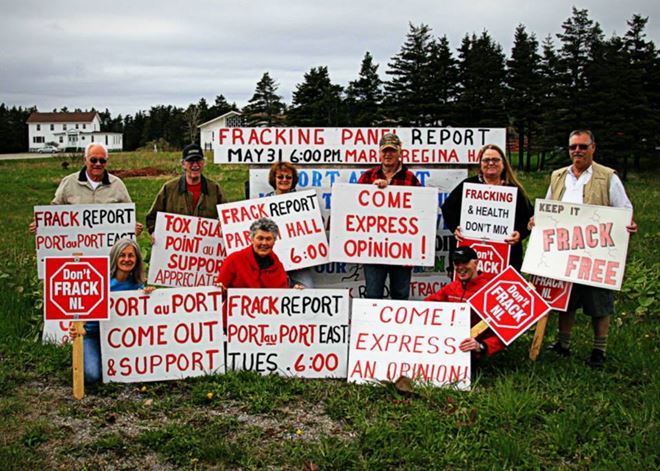
Photo of Port au Port/Bay St. George Fracking Awareness Group Board, May 26, 2016. Photo by Aiden Mahoney
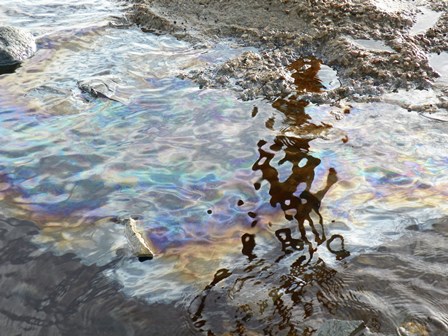
Photo by Jerome Hoskins May 24, 2016 (Note concrete plug top of photo. Repair cost about $175,000.00) The oil leak that was repaired last fall in Port au Port Bay at Shoal Point is leaking once again.
2016 05 10: THREE NEW STUDIES: FRAC WASTE CONTAMINATES WATER AND SOIL, SOME FOR THOUSANDS OF YEARS
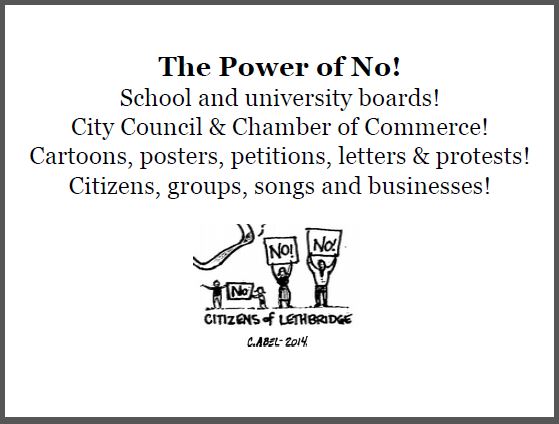
Slide from Ernst presentations
Anthony Ingraffea, PhD, Dwight C. Baum Professor of Engineering, Cornell University, said,
“In 2008*, when New York State first declared a moratorium on fracking, only six peer-reviewed papers on the health and environmental impacts had been published. Now there are more than 400, and the vast majority show a clear and present danger.
What’s more, many problems are unfixable by regulations of any kind.”
Pennsylvania Supreme Court Justice Castille:
“By any responsible account,” Chief Justice Castille wrote, “the exploitation of the Marcellus Shale Formation will produce a detrimental effect on the environment, on the people, their children, and the future generations, and potentially on the public purse, perhaps rivaling the environmental effects of coal extraction.”
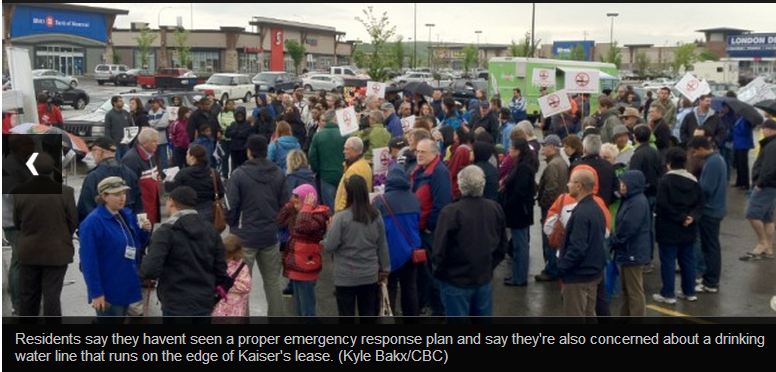
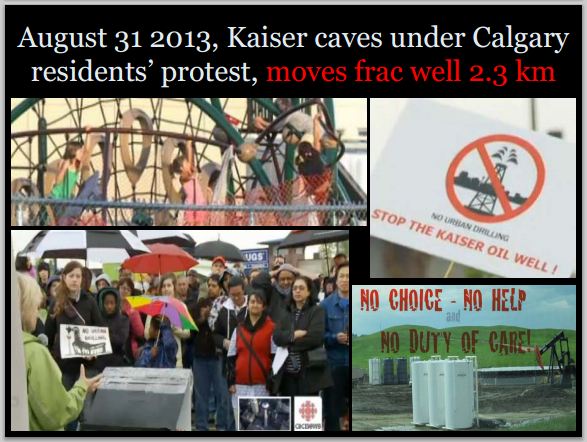
2012 09 20: Fracking banned by Quebec government
Quebec’s new natural-resources minister, Martine Ouellet, says she doesn’t believe the controversial method of extracting natural gas from shale, known as “fracking,” can ever be done safely.
…
“I don’t foresee a day when there will be technology that will allow safe exploitation (of shale gas),” Ouellet said in Quebec City. [Emphasis added]
2012 05 12:The Consequences of Fracking interview by CaptureMeFilms, Michigan USA:
Jessica Ernst:
“No healthy community will allow hydraulic fracturing so they have to make the community sick…they do so by feeding the dark side [of] human nature which is greed, sloth, selfishness.
They feed the ego
they promise a little bit…
…and then whammo, the community is divided.
The people with concerns are then abused
by the people who want more money
and Encana doesn’t even have to do the dirty work!
A lot of the other companies;
the people in the communities
do the dirty work for them.
It’s an incredibly brilliant technique [Industry and the regulators call it Synergy] which works very well.
Everywhere they’re fracking this is happening.
And my conclusion as a scientist,
and as an environmental biologist–
as an environmental specialist that has worked in this industry…
My conclusion is that No healthy community on this planet would allow hydraulic fracturing because it is not safe. It is impossible to do even with the best rules and regulations.”
2011 12 10 Jessica Ernst at Memramcook New Brunswick with Florian Levesque
2011 12 09 Jessica Ernst Presentation at Upham New Brunswick
2011 12 01: DR. ANTHONY INGRAFFEA in New Brunswick PART 1
2011 12 01: DR. ANTHONY INGRAFFEA in New Brunswick PART 2
2011 05 13: France bans ‘fracking’
2011 05 03: Is hydraulic fracturing safe and sustainable?
Ernst was invited to present on fracing (Ernst’s first after going public in April 2011 with her frac lawsuit) at United Nations 19th Commission on Sustainable Development, New York City
Some slides from Ernst’s presentation:
More than five years of legal process later, Encana still has not disclosed to Ernst, legally required including trade secrets, all chemicals the company illegally injected into Rosebud’s drinking water aquifers in 2004.
After the regulator was caught breaking the law and spying on innocent Albertans, the government changed the ERCB to AER (Alberta Energy Regulator).
2006 05 17: Bruce Jack Private water well explosion at Spirit River, Alberta
2005 11 24: AER violates Ernst’s Charter rights, banishes her from energy regulation after she presented the regulator with evidence of Encana’s non-compliance.
2005 07 25: Tweetie Blancett, Brad Stelfox and Jessica Ernst present at Cowley, Alberta
2005 04 21: Mike Gatens (CEO MGV Energy Inc. – now Quicksilver; Chair Canadian Society for Unconventional Gas – now Canadian Society for Unconventional Resources) and Jessica Ernst at Hudson’s Hope, British Columbia
Mike Gatens:
“Canada has advantage of a regulatory regime that will not allow “negative” U.S. experiences to occur here”
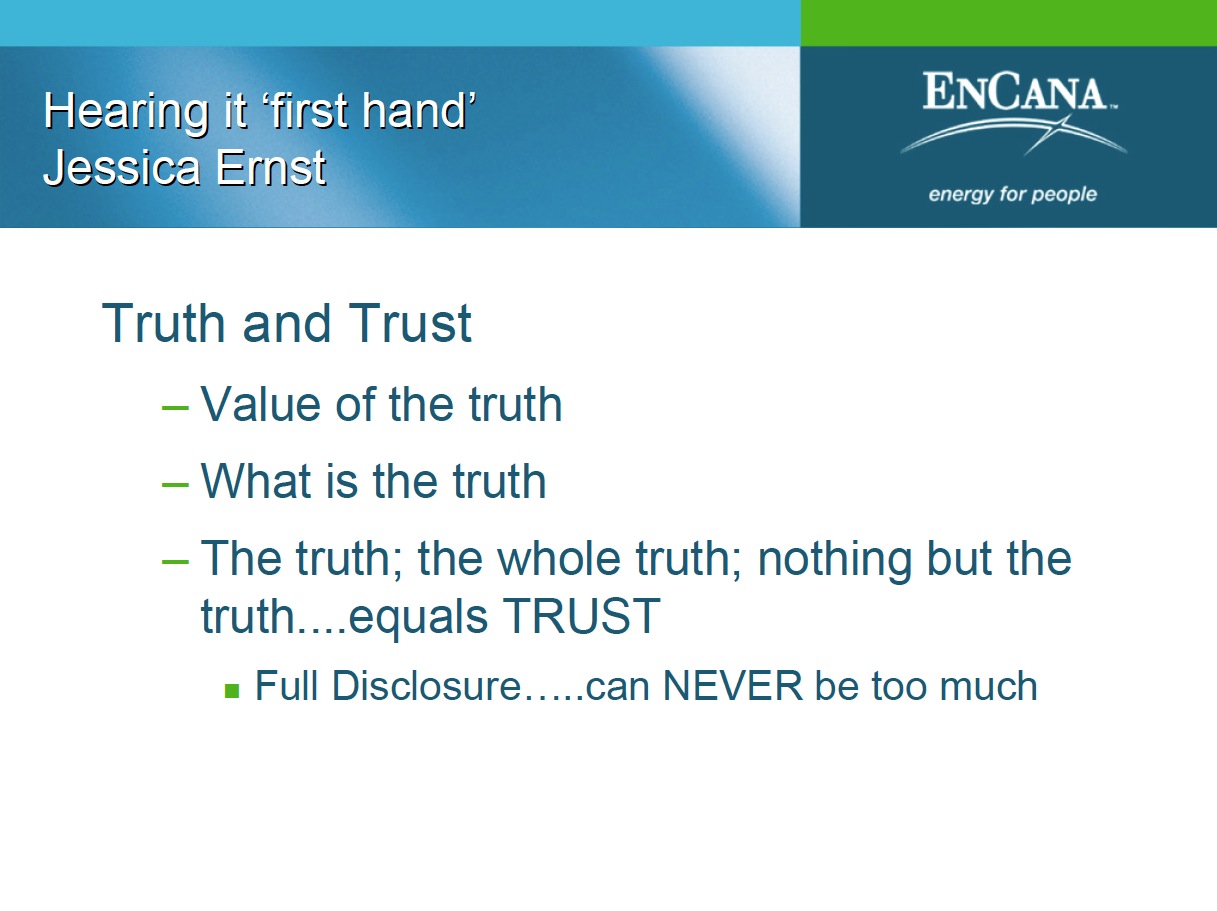
Twelve years later, companies and regulators still refuse to tell the public the truth about hydraulic fracturing, and refuse to fully disclose all chemicals injected.
2004 03 02: Encana illegally fractures directly into Rosebud’s drinking water aquifers
